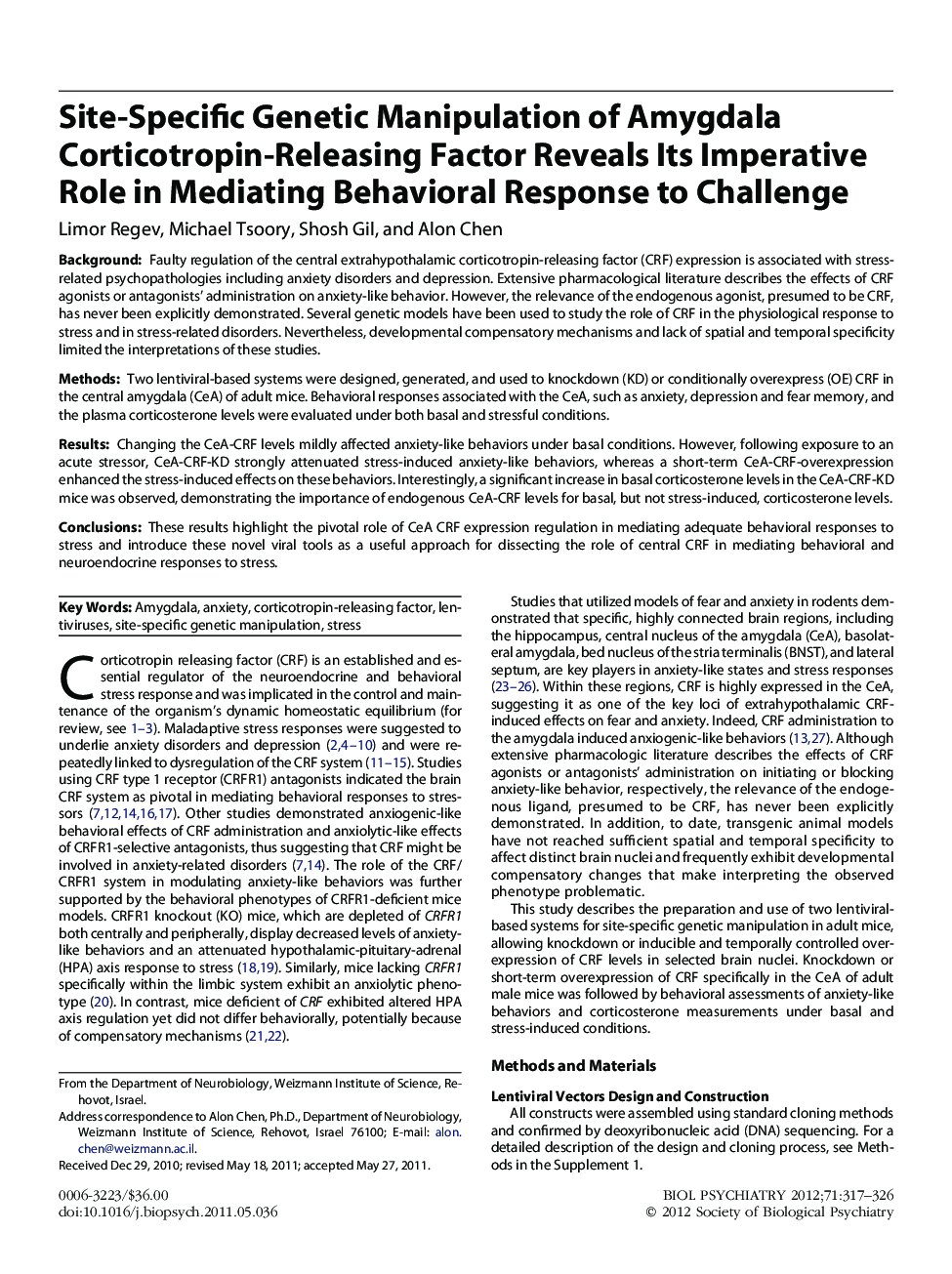| Article ID | Journal | Published Year | Pages | File Type |
|---|---|---|---|---|
| 4178254 | Biological Psychiatry | 2012 | 10 Pages |
BackgroundFaulty regulation of the central extrahypothalamic corticotropin-releasing factor (CRF) expression is associated with stress-related psychopathologies including anxiety disorders and depression. Extensive pharmacological literature describes the effects of CRF agonists or antagonists' administration on anxiety-like behavior. However, the relevance of the endogenous agonist, presumed to be CRF, has never been explicitly demonstrated. Several genetic models have been used to study the role of CRF in the physiological response to stress and in stress-related disorders. Nevertheless, developmental compensatory mechanisms and lack of spatial and temporal specificity limited the interpretations of these studies.MethodsTwo lentiviral-based systems were designed, generated, and used to knockdown (KD) or conditionally overexpress (OE) CRF in the central amygdala (CeA) of adult mice. Behavioral responses associated with the CeA, such as anxiety, depression and fear memory, and the plasma corticosterone levels were evaluated under both basal and stressful conditions.ResultsChanging the CeA-CRF levels mildly affected anxiety-like behaviors under basal conditions. However, following exposure to an acute stressor, CeA-CRF-KD strongly attenuated stress-induced anxiety-like behaviors, whereas a short-term CeA-CRF-overexpression enhanced the stress-induced effects on these behaviors. Interestingly, a significant increase in basal corticosterone levels in the CeA-CRF-KD mice was observed, demonstrating the importance of endogenous CeA-CRF levels for basal, but not stress-induced, corticosterone levels.ConclusionsThese results highlight the pivotal role of CeA CRF expression regulation in mediating adequate behavioral responses to stress and introduce these novel viral tools as a useful approach for dissecting the role of central CRF in mediating behavioral and neuroendocrine responses to stress.
